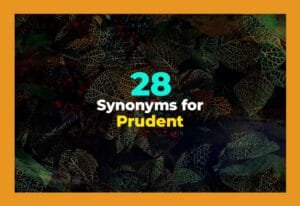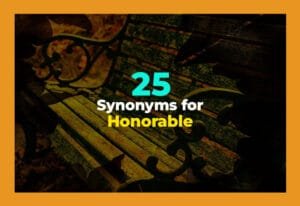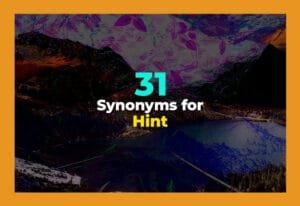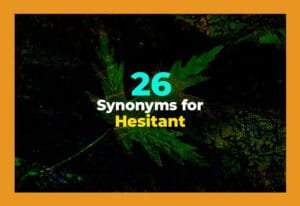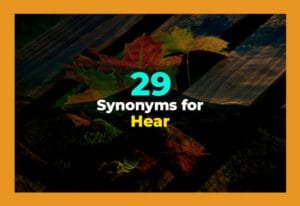You often hear nonsense in daily talks, but did you know there are many fun and easy words to say the same thing? Words like rubbish, baloney, and hogwash help you explain silly or untrue ideas clearly. This guide will help you use common synonyms for nonsense with easy examples so you can sound smart and simple.
1. Rubbish
Rubbish means something that is not true or has no value. People use it when they want to say that what was said or done is useless or silly. For example, “That story about the flying cat is rubbish.” It's a strong word that shows you don't believe something at all. You can hear it a lot in everyday talk, especially when someone disagrees with what others say. Saying rubbish is a simple way to show that something makes no sense.
2. Baloney
Baloney is a fun word to use when you want to say something is silly or untrue. It sounds a bit funny but is a popular way to call out nonsense. For example, “He said he won the lottery, but that's baloney.” People often use baloney in casual talks to keep the mood light but still say something isn't real. It's an easy word for kids and adults alike when they want to disagree without being too harsh.
3. Trash
Trash means something worthless or bad, and it can also mean nonsense. If you say, “This idea is trash,” you mean the idea is not good and does not make sense. Trash is a strong word and is used to throw away bad thoughts or things. It's simple to understand because trash is what you throw out when it's no longer needed or useful. So, calling something trash means it's just nonsense you don't want to keep.
4. Bunk
Bunk is a short and easy word to say nonsense or lies. When someone says, “That's bunk,” they mean what was said is not true or is silly. Bunk is common in conversations where people want to quickly show they don't believe a story or excuse. It is often used in schools or among friends. For example, “Your excuse for being late is bunk!” means the excuse is nonsense or not believable.
5. Babble
Babble means talking quickly and without making much sense. When people babble, they say nonsense because their words don't form clear ideas. For example, “He started to babble when he was nervous.” It is often used to describe children or someone confused. Babble shows how nonsense can be in the way people talk, not just what they say. It's a useful word for silly or unclear speech.
6. Gibberish
Gibberish is like babble but usually means words that sound like nonsense because they don't form real sentences. People say “He spoke gibberish” when they don't understand what someone says. It's often used when language is mixed up or when someone talks too fast. For example, “That report was full of technical gibberish.” Gibberish is easy to use when you want to say something is confusing or meaningless.
7. Drivel
Drivel means silly or stupid talk that has no meaning. When someone talks drivel, they say nonsense that wastes time. For example, “Don't listen to his drivel about the stars.” It's a polite way to say someone's words are not important or true. Drivel is good to use when you want to ignore nonsense without being rude. It helps show you don't think much of what is being said.
8. Hogwash
Hogwash is a funny word that means nonsense or lies. It sounds like a silly phrase but is used seriously to say something is not true. For example, “His story about ghosts is pure hogwash.” People use hogwash to reject silly ideas or fake stories. It's popular in everyday speech and easy to say, making it great to use with friends or family when you want to say nonsense.
9. Poppycock
Poppycock is a fun, old-fashioned word that means nonsense or silly ideas. You can say, “That's poppycock!” to show you don't believe what someone says. It sounds polite but still shows strong disagreement. Poppycock is a great word to use when you want to sound smart or a little funny. It's easy to remember and adds some fun to saying nonsense.
10. Twaddle
Twaddle means silly or useless talk. When people say twaddle, they mean nonsense that is not worth listening to. For example, “Ignore all that twaddle about aliens.” It's a light way to say something doesn't make sense. Twaddle is useful when you want to keep the mood friendly but show that what was said is nonsense. It works well in stories or everyday conversations.
11. Claptrap
Claptrap means nonsense or empty talk meant to impress but without meaning. When someone says, “That's just claptrap,” they mean the words are fake or useless. It's often used in business or politics to call out speeches or promises that don't hold true. Claptrap shows how nonsense can sometimes sound smart but really means nothing. It's a great word for grown-up talks.
12. Malarkey
Malarkey is a fun word for nonsense or lies. You can say, “Don't believe that malarkey,” to warn someone not to trust a silly story. It sounds friendly but serious enough to reject nonsense. Malarkey is common in casual talks and makes saying nonsense more interesting. It's easy to say and works well when you want to make a point clearly.
13. Bull
Bull is a short, strong word for nonsense or lies. Saying “That's bull!” means you think what someone said is not true or is stupid. It is used mostly in informal talks and can sound rude if used too much. Bull is a quick way to reject nonsense, especially when you are surprised or angry. It's a powerful word but should be used carefully.
14. Balderdash
Balderdash means nonsense or foolish ideas. People say, “That's pure balderdash,” to show strong disbelief. It's an old-fashioned word but still easy to use. Balderdash sounds polite but still shows you don't agree with what was said. It's a good word for stories or claims that are clearly untrue or silly. You can use it to sound smart and clear.
15. Blather
Blather means to talk nonsense for a long time without saying anything important. When someone blathers, they waste time with silly words. For example, “He blathered on about nothing.” Blather is useful when you want to say someone talks too much nonsense. It's a good word to describe confusing or boring talk that has no meaning.
16. Blabber
Blabber means to talk too much, often saying silly or secret things. When you blabber, you say nonsense or things you shouldn't say. For example, “Don't blabber about the surprise party.” It's often used to warn people to be quiet or careful with words. Blabber shows how nonsense can come from talking too much or saying the wrong things.
17. Fluff
Fluff means words or ideas that are soft and useless, like nonsense. Saying “That report is full of fluff,” means it has no real information, just empty talk. Fluff is often used for writing or speeches that sound nice but don't say much. It's a gentle way to say something is nonsense, good for polite talks or schoolwork.
18. Mumbo jumbo
Mumbo jumbo means nonsense words or ideas that are hard to understand. People say, “This rule is just mumbo jumbo,” to show it makes no sense. It's a fun phrase to say when things sound confusing or fake. Mumbo jumbo is easy to use for tricky or strange talk, especially when you want to explain that something is nonsense in a playful way.
19. Gobbledygook
Gobbledygook means language that is confusing and makes no sense. For example, “The instructions were full of gobbledygook.” It is often used for writing or speech that uses too many hard words or confusing phrases. Gobbledygook shows how nonsense can be in the way people talk, not just what they say. It's a funny and useful word for unclear talk.
20. Idiocy
Idiocy means very silly or stupid ideas. When someone says, “That's idiocy,” they mean the idea is nonsense and shows no good thinking. It's a strong word for nonsense that comes from being foolish. Idiocy helps explain nonsense that is not just wrong but also silly or dumb. Use it carefully because it can sound harsh.
21. Foolishness
Foolishness means acting or talking in a silly way that doesn't make sense. Saying “That's foolishness,” means the idea or action is nonsense because it's not smart. It's a kind way to say nonsense without being rude. Foolishness is good for explaining silly mistakes or ideas that don't work well. It helps you talk about nonsense in a gentle way.
22. Silly talk
Silly talk means words that are funny or silly and don't make sense. For example, “Stop with the silly talk and get serious.” It's an easy phrase that everyone understands. Silly talk is good to use when you want to say nonsense but keep things light and friendly. It's simple and clear for kids and adults.
23. Garbage
Garbage means trash or something worthless. When people say, “That's garbage,” they mean nonsense or bad ideas. It's a strong word to show you don't want to accept what was said. Garbage is easy to say and understand because we throw out garbage when it's useless. Calling something garbage means it's nonsense that should be ignored.
24. Crap
Crap is a casual and rude word for nonsense or bad things. Saying “That's crap,” means you don't believe or like what was said. It's very common in everyday speech but not polite for formal talks. Crap is a quick way to reject nonsense, but you should use it only with close friends or informal places. It's short and strong.
25. Hooey
Hooey is a funny word that means nonsense or lies. You can say, “That's a bunch of hooey,” to show you don't believe something. It sounds a bit old-fashioned but is easy to say. Hooey is good for jokes or when you want to reject nonsense in a friendly way. It's a fun word that adds some humor to calling out nonsense.
26. Jibber-jabber
Jibber-jabber means talking too much nonsense without clear meaning. When someone is jibber-jabbering, they say silly or confusing words. For example, “Stop your jibber-jabber and get to the point.” It's a playful phrase used mostly with kids or friends. Jibber-jabber shows how nonsense can come from too much talking that doesn't make sense.
27. Jargon
Jargon means special words used by a group that sound confusing or meaningless to others. When people say, “That's just jargon,” they mean the words don't make sense to most people. Jargon can be nonsense if you don't know what it means. It's often used in work or school talks where people use big or hard words. Knowing this helps you spot nonsense that sounds smart but isn't clear.
28. Rambling
Rambling means talking or writing in a long, confusing way that makes no clear sense. For example, “His speech was rambling and full of nonsense.” Rambling shows nonsense by the way someone talks, not just the words. It's good to describe when people don't get to the point and confuse others. Rambling is easy to understand because we all know what it feels like to lose focus.
29. Wind
Wind means nonsense talk or empty words that don't mean much. Saying “He's full of wind,” means the person talks nonsense or lies. It's a short and easy word often used in informal talks. Wind shows nonsense in a fun way, like someone is just blowing air without real meaning. It's good for quick and casual talks.
30. Noise
Noise means loud, meaningless sounds or words that don't make sense. Saying “All that noise is nonsense,” means the talk is just confusing or useless. Noise can be real sound or talk that bothers others because it's nonsense. It's simple to use and easy to understand. Noise helps explain nonsense in a way everyone knows.
31. Trash talk
Trash talk means saying mean or silly words to bother others, often nonsense or lies. For example, “Stop your trash talk during the game.” It's common in sports or competitions where people say silly or false things about opponents. Trash talk shows nonsense mixed with teasing or anger. It's a fun way to describe nonsense when people try to bother each other.
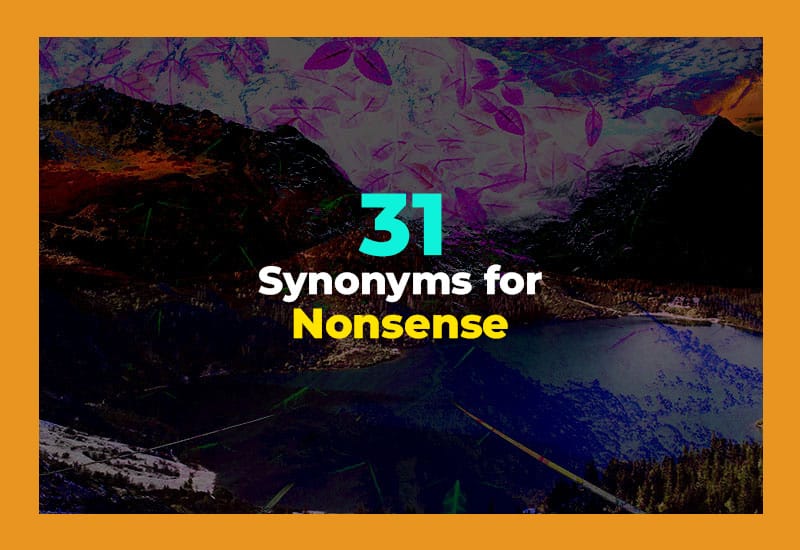
Final Thoughts
Now you have 31 easy and useful synonyms for nonsense to use in many talks and writings. Using these words will help you explain silly or untrue ideas clearly and simply. Try them out with your friends or in stories to make your talks more fun and interesting. Remember, knowing many words makes your language stronger and more creative.


